GPS systems are pretty much embedded in our everyday tech life, but have you ever wondered how they became so crucial? It all started back in the 1970s, when the U.S. Department of Defense developed this satellite-based system primarily for military operations. Fast forward a couple of decades, and these little satnav miracles have become essential tools for civilians too.
The way GPS works is quite fascinating. Satellites orbiting the Earth send precise locations and time data to GPS receivers on the ground. By picking up signals from at least four satellites, these receivers can use the timing differences to figure out exactly where they are on the planet. It’s like having a bunch of high-tech eyes watching over us from space.
Having a GPS at your fingertips isn’t just a luxury; it’s a major win for convenience and safety in our daily lives. Whether you’re navigating through a busy city, planning a road trip with friends, or just trying to get from point A to B, GPS systems provide the guidance needed to avoid getting lost. It’s like having a co-pilot who’s on call 24/7.
As you can see, GPS technology has evolved significantly since its inception. It’s not just about maps anymore; it’s about transforming how we connect with the world around us and ensuring we do it safely and efficiently. So, buckle up as we explore just how GPS keeps us all on the right path while enhancing our safety.
Enhancing Safety through Accurate Location Tracking: Why Precision Matters
When it comes to staying safe on the road, precision in GPS technology isn’t just helpful—it’s essential. Accurate location tracking can make all the difference while navigating unfamiliar areas. Imagine driving through a new city for the first time without GPS guiding every twist and turn. Having real-time data on your location can help avoid dangerous wrong turns or detours, steering you clear of trouble spots.
One major safety advantage of precise GPS data is the ability to map out precisely where you are, helping you plan routes with fewer surprises. This accurate tracking is crucial when traveling through rural or isolated regions where getting lost could lead to significant delays or even hazardous situations.
GPS systems aren’t just about finding the quickest route; they’re about preventing accidents too. When paired with other safety technologies, like collision detection systems in modern cars, accurate GPS data can warn drivers about potential hazards up ahead, like sharp curves or traffic jams.
Beyond road travel, professional rescue teams rely on precision in emergencies. Accurate GPS data ensures faster response times by pinpointing exact locations, whether it’s for roadside assistance or emergency medical services. This kind of efficiency can significantly reduce time to reach an individual in distress.
In short, the precision of GPS technology does more than just get us where we need to go with ease. It offers peace of mind by acting as a safety net, ensuring that whether we’re traveling across town or cross-country, we’ve got an accurate guide leading the way. This attention to detail elevates our travel experiences from a simple journey to a sophisticated, safe adventure.
Revolutionizing Transportation: The Role of GPS in Modern Vehicles
GPS technology has revolutionized how we interact with our vehicles, transforming the way we drive. By integrating GPS systems with automotive safety features, we’ve made leaps in keeping road travel safer than ever before.
One big area where GPS shines is through its collaboration with vehicle safety systems. Many modern cars now come equipped with smart navigation systems that don’t just tell you where to go—they also alert you to speed limits and impending traffic or obstacles. This synergy between GPS and advanced driver-assistance systems (ADAS) can dramatically reduce risks on the road.
But the benefits go beyond individual safety. GPS also plays a crucial role in aiding emergency response. If you’ve ever had a breakdown or been involved in an accident, you know how valuable it is for rescuers to locate you quickly. GPS enables emergency services to pinpoint your location accurately, shaving precious minutes off response times and possibly saving lives.
There’s also an ecological upside. By using GPS to design more efficient routes, we cut down unnecessary travel time and reduce fuel consumption. In the grand scheme of things, those reduced emissions contribute to a cleaner, greener planet.
The convenience and safety improvements brought on by GPS technology highlight its pivotal role in modern transportation. Whether it’s guiding us from A to B efficiently or helping first responders reach someone in need, GPS ensures that our journeys are as safe, efficient, and eco-friendly as possible.
GPS in Aviation and Maritime Navigation: Crucial for Air and Sea Safety
Navigating the skies and seas wouldn’t be the same without the reliability of GPS technology. For pilots, GPS is indispensable for plotting precise flight paths, ensuring planes stay on course and avoid mid-air confusion or conflict with other aircraft. With accurate positioning systems, pilots can execute smoother takeoffs and landings, enhancing passenger safety and improving overall flight efficiency.
In maritime settings, the role of GPS is just as crucial. Ships rely on GPS for real-time positioning and navigating through vast, often unpredictable waters. This technology helps captains avoid hazards like reefs or restricted zones and ensures they’re on the best route to the destination. Precision in sea navigation is vital, particularly when maneuvering through busy ports and narrow waterways where errors can lead to costly, dangerous situations.
You’ll often read about incidents where GPS technology played a pivotal role in avoiding disasters or responding effectively to emergencies involving aircraft or vessels. Frequent case studies in aviation and maritime sectors highlight how GPS systems not only aid in regular operations but have also been game-changers during critical events, preventing accidents and often saving lives.
These accounts underline the significance of having robust GPS support. Both air and sea travel inherently come with high risks, and GPS serves as a silent guardian, offering guidance and the assurance of a safer voyage. So whether you’re cruising above the clouds or navigating vast oceans, the importance of GPS in ensuring safety is irrefutable.
Personal Safety: GPS Applications for Everyday Use
Ever thought about how much easier our personal safety routines have become thanks to GPS applications? From navigation apps that help us find the best routes to features in smartphones that let us share our location with loved ones, GPS has become a trusted companion for daily safety.
In everyday life, navigation apps like Google Maps or Waze do more than just help us avoid traffic. They offer real-time updates on road conditions, helping us steer clear of accidents or any potential delays. This kind of up-to-date information means we can make informed decisions while on the move, reducing stress and making our journeys more predictable.
For added peace of mind, GPS tracking is particularly useful in emergencies. Imagine you’re hiking in a remote area and get lost or injured. Having a GPS-enabled device means rescuers can pinpoint your exact location, speeding up their response times and significantly improving outcomes.
Wearable GPS gadgets are another brilliant innovation, providing reassurance in various situations. Whether it’s ensuring your child’s safety on the way to school or tracking a loved one with dementia, these devices ensure you know their whereabouts at all times.
Beyond comfort, the personal safety advantages of GPS technology make it a practical necessity in our gadgets and day-to-day activities. It’s all about making sure that while we’re navigating through life, we’ve got the tools to do so safely and confidently.
Challenges and Limitations: Navigating the Intricacies of GPS Systems
Even with all its perks, GPS technology isn’t perfect. Certain environments, like urban canyons or dense forests, can obstruct signals, leading to less precise location data. These signal issues might leave you momentarily puzzled about your exact location, reminding us that GPS, while revolutionary, has its Achilles’ heel.
Then there’s the not-so-friendly side of technology: threats like spoofing and jamming. Spoofing involves deceiving GPS receivers with false data, potentially leading to incorrect positioning. It’s a risk mainly for sectors that require unwavering accuracy, like aviation and maritime navigation. Meanwhile, jamming can disrupt GPS signals altogether, which is concerning for anyone relying on it for directions.
Given these challenges, the industry is always on the lookout for ways to enhance GPS resilience and reliability. Regular updates and the development of complementary systems, such as Europe’s Galileo or Russia’s GLONASS, provide redundancy and improve overall service availability.
Fully understanding where GPS might fall short emphasizes the need for continuous innovation. As we lean more heavily on these systems in our personal and professional lives, addressing these limitations becomes vital in ensuring we trust the devices we depend on daily. So, while we enjoy the benefits GPS offers, we must stay mindful of these hurdles and look forward to solutions keeping us heading in the right direction.
The Future of GPS: Innovations and Emerging Trends
As GPS technology evolves, its potential to reshape our future landscape is exciting. We’re on the brink of a new era in navigation, characterized by improved accuracy and innovative applications that stretch beyond current imagination.
Upcoming advancements in satellite technology promise to enhance GPS precision significantly. This means even more reliability in positioning, which will be crucial for sectors that depend heavily on minute accuracy, like autonomous vehicles and drone delivery services.
AI and machine learning are stepping into the GPS arena, allowing for smarter, more adaptive systems that can predict and react to environmental changes. These advancements ensure smoother navigation experiences and can even help anticipate and mitigate potential disruptions in signal and service.
With all this progress, there’s an increased emphasis on public safety, too. Future GPS systems could be equipped with advanced safety features capable of alerting users about natural disasters or security threats, providing extra assurance in critical situations.
The future holds endless possibilities for GPS, transforming it from a mere navigation tool to an integral component of everyday interaction with the world. As these technologies continue to develop, they’ll not only enhance our navigation experience but also expand what’s possible in terms of safety, efficiency, and connectivity in the years to come.
As an Amazon Associate I earn from qualifying purchases.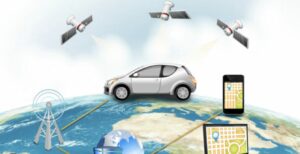
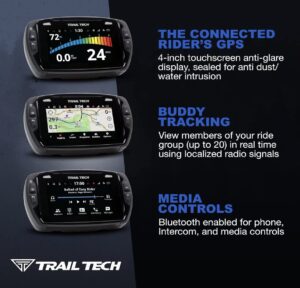
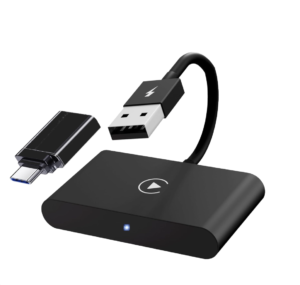
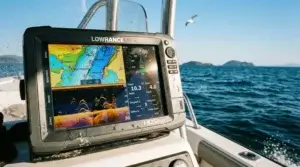
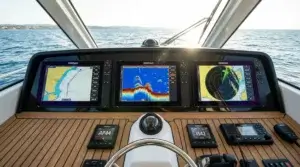
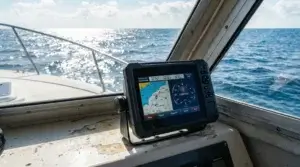
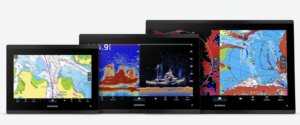
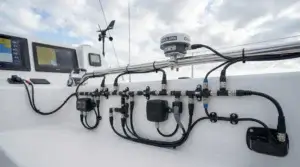


Thank you for the insightful article on the importance of GPS systems for safe navigation. You’ve highlighted some excellent points about how GPS technology has revolutionized the way we travel, both on a personal and professional level.
I particularly appreciated your discussion on the integration of GPS with automotive safety features. It’s fascinating to consider how these systems work together to not only provide efficient navigation but also actively contribute to reducing risks on the road. The potential for GPS to aid in emergency response and even promote eco-friendly practices by optimizing routes is truly remarkable.
You also raised an important point about the challenges GPS technology faces, such as signal obstruction and potential security threats like spoofing and jamming. It’s crucial that we remain aware of these limitations as we increasingly rely on GPS in our daily lives.
Looking to the future, I’m excited to see how advancements in satellite technology, AI, and machine learning will continue to enhance the precision and capabilities of GPS systems. The possibilities for improved safety features and innovative applications are endless.
I’m curious to hear your thoughts on how you envision GPS technology evolving in the coming years. What do you think will be the most significant developments, and how do you see them impacting various industries and our everyday lives? Additionally, what steps do you believe are necessary to address the current limitations of GPS and ensure its resilience and reliability moving forward?
Thank you again for sharing your knowledge on this topic. I look forward to engaging in further discussion and hearing your insights on the future of GPS technology.
Eric
Hi Eric,
Thank you for your thoughtful and engaging response—I’m glad you found the article insightful. You’ve made some excellent observations, especially about the role GPS plays in enhancing not just navigation but overall road safety and environmental sustainability. The integration of GPS with advanced automotive systems is indeed a fascinating area, and its potential to support eco-friendly practices and emergency response is becoming increasingly relevant.
As for the future of GPS technology, I believe we’ll see significant strides in precision and resilience, particularly through the integration of AI and machine learning. These technologies will likely enable predictive navigation, real-time traffic adaptation, and even more seamless integration with autonomous systems. In terms of industries, logistics, agriculture, and urban planning stand to benefit immensely from improved GPS accuracy and data analytics.
To address current limitations like signal obstruction, spoofing, and jamming, a multi-layered approach will be necessary—this includes incorporating backup navigation systems (like inertial navigation), developing more secure signal authentication protocols, and expanding the use of complementary technologies like terrestrial-based positioning systems.
Thank you again for your insightful comments and questions—I’d be glad to continue this conversation as the technology evolves.
Best regards,
Andrejs
The point about GPS providing real-time traffic updates and alternative routes is a major advantage for avoiding delays and road hazards. The explanation of how it enhances safety in remote areas without cell service is a practical detail many drivers might not consider.
Many people rely on GPS for daily commuting without realizing how much the technology has improved emergency response times by providing precise location data.
You mentioned that modern systems offer lane assistance. How accurately do these systems typically handle complex interchanges or recently changed road layouts? Also, for the offline mapping feature, how often would you recommend updating the maps to ensure they remain reliable?
You’ve raised some excellent points. The way GPS contributes to faster emergency response is often overlooked, but it really highlights how the technology has become more than just a navigation tool—it’s a safety lifeline as well.
As for lane assistance, most modern systems are impressively accurate in handling complex interchanges, especially when they’re supported by high-definition maps and real-time data. That said, they can sometimes lag behind if a road layout has recently changed, so drivers still need to stay alert.
For offline maps, updating every few months is usually a good practice, especially if you travel in areas where construction or new developments are common. Frequent updates help ensure you’re not relying on outdated routes when connectivity drops.